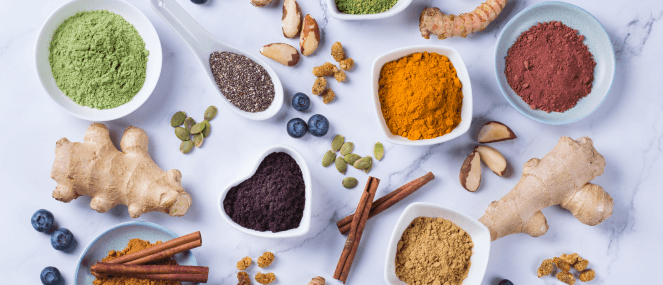
- Health hub/
- Stress relief & sleep support/
- Managing migraines naturally


If you suffer from migraines, you'll probably recognise these additional symptoms: nausea, vomiting, sensitivities to light, smell and sound, changes in bowel movements, mood changes, low mood, irritability, muscle stiffness, loss of appetite, and fatigue.
Migraines can last days and can be physically, socially and emotionally debilitating, with most people finding relief in symptoms only when they can lie in a dark, quiet room.
Women more likely than men
Up to 3 million Australians suffer from migraines and it is three times more common in women than men. Fluctuations in oestrogen and progesterone are a possible trigger, since it's more common for women to experience migraine attacks pre-menstrually, during puberty and during peri-menopause, when hormonal changes are at their greatest.
What are the triggers?
There are several common migraine triggers, which should be avoided if you suffer from them. These include:
- Stress – A stressful event can bring on a migraine. Weekend migraines are common where relaxation follows a week of hard work.
- Skipping meals or fasting.
- Certain foods and beverages – Alcohol, aged cheeses, chocolate, aspartame, caffeine, MSG, certain processed or canned foods, and sauces found in Asian cooking are common triggers in sensitive people.
- Sleep – Too little sleep, too much sleep or a change in sleep patterns.
- Sensory stimulus – Bright lights, sun glare and unusual smells (pleasant or unpleasant).
- Environmental changes – Changes in barometric pressure, altitude level and general seasonal changes can prompt a migraine.
- Medications – These include the oral contraceptive pill. Discuss your symptoms with your health care professional if you feel your medications are triggering your migraines.
How can migraines be treated naturally?
1. Magnesium
Magnesium levels have been shown to drop right before a migraine. It is thought that low levels of this mineral may cause nerve cells in the brain to misfire, resulting in migraine episodes. Good food sources of magnesium include dark leafy vegetables, nuts and seeds, wholegrain cereals, legumes, cocoa. Studies have shown that magnesium supplementation can reduce the frequency and duration of attacks.
2. Feverfew
Herbal medicine offers the herb feverfew (Tanacetum parthenium) for the treatment and prevention of migraines. In reducing inflammation, this herb can prevent the blood vessel constriction that may lead to headaches. Feverfew may also reduce the symptoms associated with migraines, such as nausea and vomiting.
3. Enhance cellular energy
Researchers theorise that migraines may be caused by a low level of cellular energy metabolism, as many sufferers show a decrease in brain cellular energy reserves between migraine attacks. B vitamins, particularly vitamin B2 (riboflavin), and coenzyme Q10 have been shown to enhance cellular energy efficiency, and are recommended as a preventative measure.
Lifestyle tips
- Relaxation – Is paramount. Practice stress management and ensure regular sleep patterns.
- Diet – Avoid the foods that are clear migraine triggers. Keeping a food diary, and recording what you eat and drink and when migraines occur, may help to identify what foods are contributing to your migraines.
- Regular exercise – This reduces tension and can help prevent migraines. Warm up slowly and always stretch after a workout.
- Stabilise your blood sugar levels – Eat small, frequent meals and avoid refined sugar, caffeine and alcohol.
- Quit smoking – Smoke is a potential trigger of migraines. Nicotine stimulates vascular activity in the brain, another trigger for attacks.
- Keep hydrated – Drink two litres of water every day to avoid dehydration.
References available upon request




